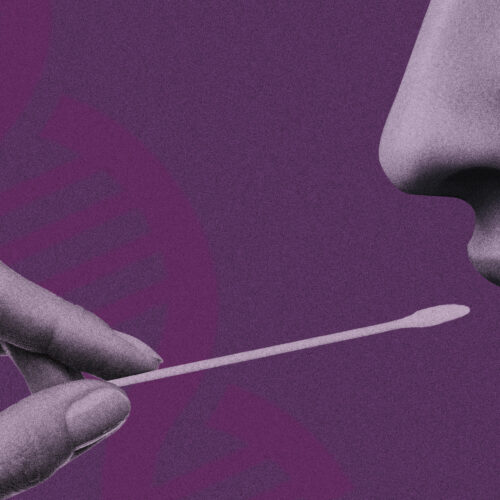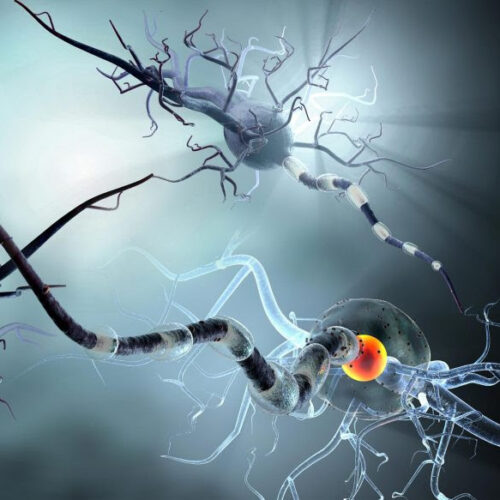by Emily Mullinarchive page April 21, 2021 MS TECH | UNSPLASH, GETTY A new startup called Orchid is offering the chance for couples planning a pregnancy to learn their odds of passing on risks for common conditions like Alzheimer’s, heart disease, type 1 and 2 diabetes, schizophrenia, and certain cancers to their future child. Existing pre-conception tests,...
Side effect of cancer treatment can be safely reduced with topical cream
UNIVERSITY OF CALIFORNIA – LOS ANGELES HEALTH SCIENCES LOS ANGELES – Patients with advanced colorectal cancer may be spared from a toxic side effect caused by a type of targeted therapy used to treat the cancer with the help of another drug normally used to treat melanoma, according to a study led by researchers at...
Researchers develop comprehensive pregnancy care management plan among Chinese pregnant women type 1 diabetes
UNIVERSITY OF SCIENCE AND TECHNOLOGY OF CHINA The research team led by Prof. WENG Jianping from University of Science and Technology of China (USTC) of the Chinese Academy of Sciences has implemented a comprehensive preconception-to-pregnancy management plan, namely CARNATION study, for women with type1 diabetes (T1D), to reduce the risks of adverse pregnancy outcomes and...
How behavioral rhythms are fine-tuned in the brain
by Kanazawa University A schema summarizing the effects caused by the deficiency of GABAergic transmission from vasopressin neurons on circadian rhythms at multiple levels. Without GABA release from vasopressin neurons, the spatiotemporal pattern of GABAergic transmission alters within the SCN. Such an alteration does not significantly disturb the spatiotemporal organization of molecular clocks measured with clock...
HIV self-test prices to be slashed in half in 135 countries
Microscopic image of an HIV-infected T cell. Credit: NIAID Poorer countries are set to see their access to HIV self-tests increase dramatically following a deal to slash prices in half and boost production, Unitaid said Wednesday. The international health agency said it had closed a deal with US-based global healthcare company Viatris that will see...
5 Takeaways From the New Food Allergy Law
Sesame becomes a “major allergen,” joining milk, eggs, fish, shellfish, tree nuts, peanuts, wheat and soybeans. Credit…Getty Images By Eric AthasPublished April 26, 2021Updated April 27, 2021, 9:51 a.m. ET If you have a food allergy, or your child does, chances are you spend a lot of time reading labels to figure out whether something will trigger an allergic...
Why older people should chill when it’s hot out
EXPERIMENTAL BIOLOGY IMAGE: A VOLUNTEER IN THE TEST CHAMBER USED FOR THE RESEARCH. THE CHAMBER IS HEATED TO SIMULATE A HEAT WAVE WHILE DEVICES CONTINUALLY MONITOR WHOLE-BODY HEAT EXCHANGE. CREDIT: JAMES MCCORMICK, UNIVERSITY OF OTTAWA. Taking a break from extreme heat, by visiting a cooling center for example, could help our cells protect themselves from...
One in five pharmacies blocks access to key medication to treat addiction
by Oregon Health & Science University Credit: CC0 Public Domain One in five pharmacies refuse to dispense a key medication to treat addiction, according to new research. The study, published in the journal Drug and Alcohol Dependence, was conducted by researchers at Oregon Health & Science University and the Oregon State University College of Pharmacy. Researchers called hundreds...
Study: Inflammation in earliest stages of Parkinson’s disease different between men and women
by Bob Shepard, University of Alabama at Birmingham Immunohistochemistry for alpha-synuclein showing positive staining (brown) of an intraneural Lewy-body in the Substantia nigra in Parkinson’s disease. Credit: Wikipedia New research shows evidence of inflammation in the blood of Parkinson’s disease patients during the earliest stages of the disease, lending support to theories that inflammation is a...
How COVID-19 Worms Its Way Into the Brain – Explaining Baffling Neurological Symptoms
By EXPERIMENTAL BIOLOGY APRIL 27, 2021 Study helps explain baffling neurological symptoms — and why they’re so unpredictable. New research offers an up-close view of how SARS-CoV-2, the virus that causes COVID-19, can spread to the brain. The study helps explain the alarming array of neurological symptoms reported in some patients with COVID-19, as well as why some patients...







